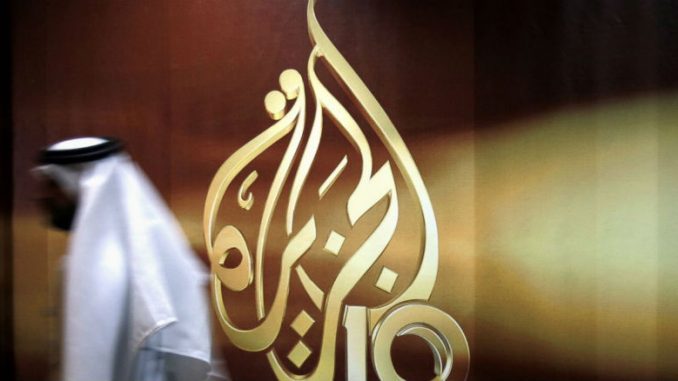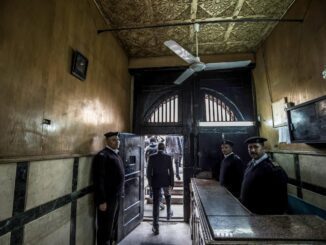
The world’s news networks have been dominated by four major press agencies since the second half of the 20th century. These are Reuters, Agence France Presse, Associated Press and the United Press International. They govern almost the totality of the news delivered through the press all over the world; they are only challenged locally by some national agencies, whose production goes through the distribution network of these four main news providers.
Back in 1974, Amadou Mahtar M’Bow, a Senegalese professor of History and Geography, educated in the French tradition, was elected as director general of UNESCO, the United Nations Educational, Scientific and Cultural Organization. He was the first African to head an important international agency. His term would last 13 years, he will forever be known as one of the most controversial, tough-minded leaders of any international organization.
During his administration, the United States and Britain quit UNESCO, asserting inefficiency in the agency’s operations and ideological squabbling. The United States quit UNESCO in 1984 and Britain left the next year. Their withdrawals combined, slashed UNESCO’s funding by about 30 percent. M’Bow was almost pushed out by a joint effort among Western countries, back in 1987.
What were M’Bow’s faults and what caused the “ideological squabbling?” Well, basically, he was one of the very rare Third World leaders to openly disclose and condemn “Operation Condor,” put in place by the United States, encompassing Bolivia, Argentina, Uruguay and Chile. Basically, the operation consisted of “anti-guerrilla tactics,” aimed at wiping off the left-wing movements in Latin America. The support extended to military dictatorships and obscure criminal organizations. The coup d’état in Chile against President Salvador Allende and the military takeover in Argentina were the most salient “achievements” in this operation. The terrible oppression, people “disappearing,” torture and assassinations that followed were possibly the darkest hours in the South American continent’s modern history. Miguel Angel Estrella, world-renowned pianist and composer from Argentina, was abducted by the myrmidons of the Uruguayan regime in Montevideo. He survived and avoided the junta in Buenos Aires, thanks to the intervention of two UNESCO special envoys. The latter arranged a safe passage for Estrella, who fled to France after three years, escaping certain death. He publicly thanked M’Bow for the intervention in a public speech he made on May 31, 2011, at the central office of UNESCO in Paris. Estrella would be nominated as the ambassador of the Republic of Argentina to UNESCO (sic) in 2003, after democracy was restored in the country.
However, what M’Bow tried to implement (unsuccessfully) and what made him unwanted by the Western Bloc was his attempt to found an independent press agency, which would become the “voice of the Third World.” The project “Communication in the service of Man” would never be properly implemented, despite the organization of News Pool. M’Bow’s analysis was correct, still his attempts to establish a more pluralistic worldwide information system by trying to dismantle the monopoly of the four dominating news agencies has never been pardoned by the U.S..
Surprisingly enough, his wishes would come true in 1996, nine years after his departure from UNESCO, in Doha, Qatar, when an “independent chain of information” with an Arabic name difficult to pronounce “Al-Jazeera” was established. Broadcasting in Arabic and English, the chain very rapidly earned an international reputation, with an ever-growing number of viewers and followers. Its slogan “setting the news agenda” became more and more of a reality, its way to interview personalities was almost never copied by conventional TV chains and agencies, and it started to become extremely disturbing and unpalatable for the Western media. Not that Al-Jazeera was always free of criticism and subjectivity, but in all fairness, it represented most of the time “the other way of seeing things.”
In our world of communication and information, pluralism has become unpardonable. We have to see things the way we are “invited” to see them, through the prism of worldwide chains and agencies. This is why Al-Jazeera was banned during the uprising in Egypt and it is being declared non grata in Israel. Nevertheless, the more “alternative” information is offered, the more public opinion around the world can have a better take on political and social developments.
As for Amadou Mahtar M’Bow, he is still alive, turning 91, helping his country Senegal, to have a better functioning democracy, working for the Commission to reform the institutions in Senegal. He is already cited together with the great names of Africa, like Amilcar Cabral, Léopold Sedar Senghor, Aimé Césaire, and Thomas Sankara… Can we say the same for el-Sissi or Netanyahu for the future? Nothing is less certain.
*EMRE GÖNEN is a Turkish journalist. He writes columns for Daily Sabah Turkish newspaper. The article was published in Daily Sabah on August 12, 2017.




